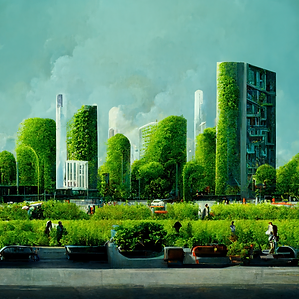SoCUS: Social Computing for Urban Sustainability
Published:
Funding: MICINN (Proyectos TED Transición Ecológica y Digital) (192280 EUR) Duration: 12/2022 until 11/2024 Role: Principal Investigator

The impending climate change demands radical revisions to the way in which activities and processes are conducted in our society. Mitigating its effects is a responsibility that rests, not only on the shoulders of policy makers, but also on those of individual citizens. Both institutions and citizens must contribute to build a more sustainable future in which minimization of pollution and energy consumption have to be embedded as key concerns in all sorts of activities across the board, but especially, in crucial sectors that are at the same time the main sources of pollution, such as transportation.The inception of green technologies, such as electric vehicles (EVs) and mechanisms to produce renewable energy, can contribute towards achieving a more sustainable future. However, these are not enough on their own to realize this vision: Citizens and institutions need to have the right conditions to be able to adopt and exploit these technologies effectively. Institutions need information about how citizens use their services to foster sustainability (not only statistical, but also about the individual context of use), but at the same time, citizen confidentiality must always be preserved.
The situation described above raises two crucial challenges. The first one is Lowering green technology adoption barriers and setting the conditions for citizens to use it in an effective manner, at reasonable economic cost, and with safety guarantees. This entails understanding the complexity of the environment in which these technologies are used and the impact of the way in which they are employed. Such understanding is extremely difficult due to high levels of uncertainty in the environment, which can be induced by varying pollution levels, weather, traffic conditions, road and area closures, energy availability and pricing fluctuations, and particularly, by human behavior, among other factors.
Another challenge is guaranteeing citizen data confidentiality by enabling users of green technologies to retain control over their information, thus preserving their privacy. Exploiting sensitive information about citizen daily routines to generate plans that can foster sustainability is challenging from a privacy perspective. However, our previous research in project COSCA (funded by the Scientific, Technical and Innovation Spanish Research Plan) has shown that this type of information can be effectively exploited by allowing smartphones to collect and analyze information from their owners while mitigating such privacy concerns by keeping data in a citizen virtual profile, namely a Digital Avatar (DA). DAs are able to store information about users’ daily routines while letting them retain control over access to their information (e.g., allowing them to decide what pieces of information to share and with whom, putting users at the center of decisions, instead of app providers).
SoCUS will devise the methods and tools required to enable citizens and institutions to combine the use of technologies at their disposal by automatically generating usage plans that guarantee energy consumption and pollution minimization while preserving citizens’ data confidentiality. The generated plans will preserve safety properties that are guaranteed even in the presence of specified levels of uncertainty in the environment. Information about citizens’ habits, routines and individual preferences will be key inputs to generating the plans, for which citizen virtual profiles (Digital Avatars or DAs) will be used, allowing them to preserve their privacy. The project also aims to build two proof-of-concept applications to demonstrate the generation of assured energy-efficient plans in complementary scenarios that correspond to urban public transportation and shared EV charging infrastructures.
